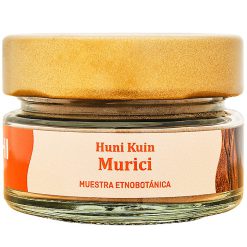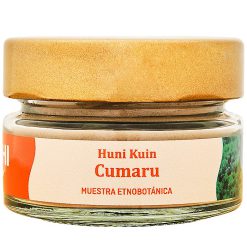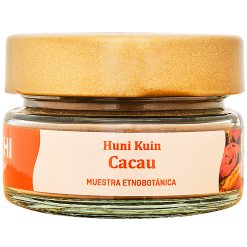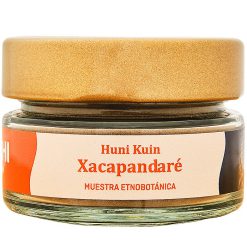Huni Kuin Life
The ecosystem in which the Huni Kuin (or Kaxinawá) live is divided into three well-defined areas:
On one hand, there is the village, made up of family houses, open houses without walls, and malokas, common spaces that are also roofed and open. All the buildings are made entirely of materials from the jungle. They generally sleep in hammocks, although they have some mattresses.
Next to the houses are the farms, the cultivated areas. Then we find an area of the jungle that still has a lot of human presence, with open roads. Finally, there is the deep jungle, the largest virgin jungle in the world, which is so difficult to enter.
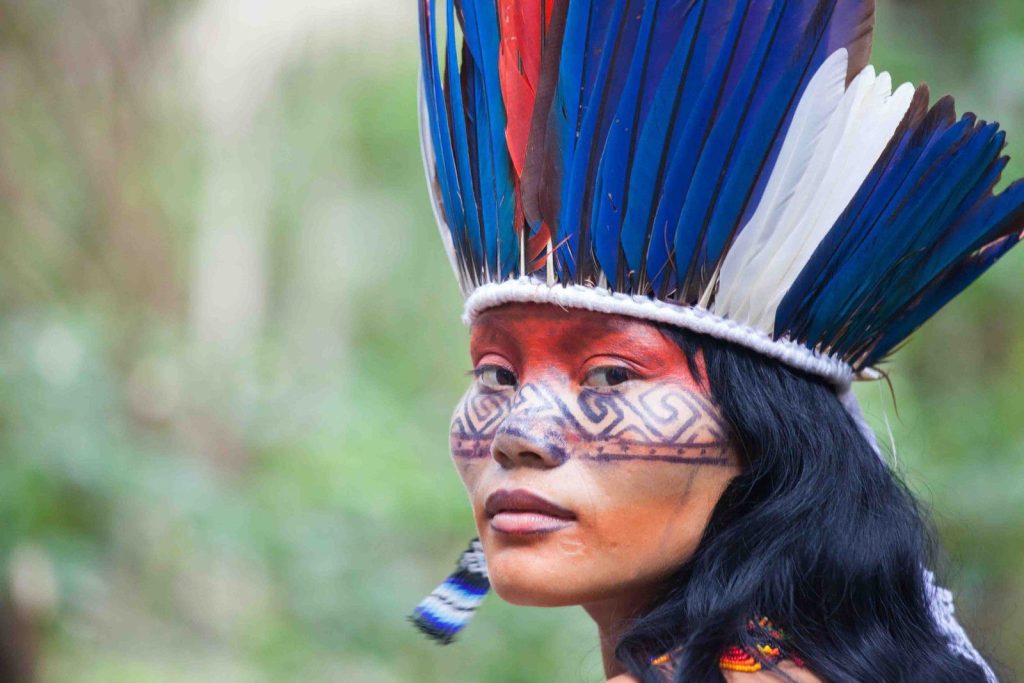
They grow some vegetables and fruits: mainly yuca, corn, beans, banana (in all its varieties), peanuts, watermelon, papaya, pineapple, açaí. They make a flour with yuca that they put in practically all their meals. They also make some fresh fruit juices, such as açaí juice.
There are some foods that they buy, so sometimes they accompany their meals with rice or pasta, although this is not normal. The food is complemented with what they have managed to hunt, whether it is meat or fish. This community eats all kinds of meat except for their sacred animals: snake, eagle, urbú (from the condor family), the rest of the animals, they eat them. Men are the hunters, but not all of them.
A small group of them has the role of hunter, which is given to them by their ancestors as well as by their body, more athletic than the rest because sometimes they walk all day, for many hours, in the jungle. They have to know her very well, and the animals. They know them even without seeing them, they can feel them, hear them, smell them.
Hunters also have a deep sense of jungle ethics. They don’t kill anything they won’t eat, and they try to remain as inconspicuous as possible. Normally, two men go hunting, no more, to create the least possible impact but to be protected. When they go fishing, however, men and women go together.
If a village migrates to other lands and abandons the village, it will be eaten by the jungle, and will disappear completely under its thick green blanket in a maximum of five years.
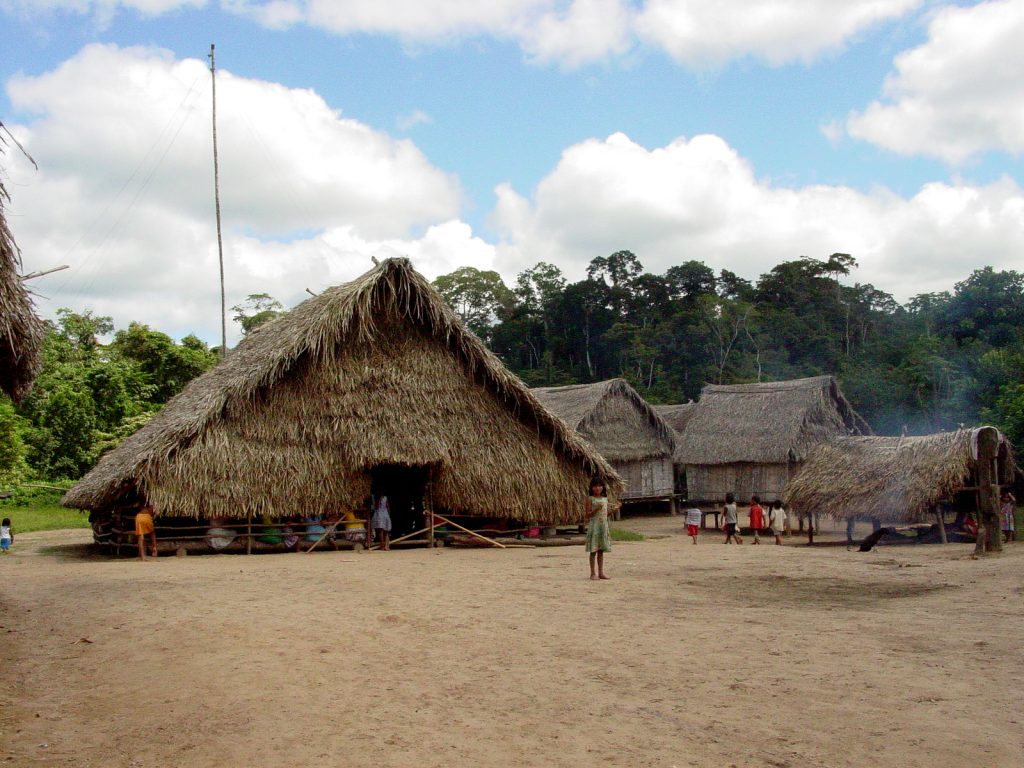
Huni Kuin Customs
The testimony of a European therapist who has lived for two months in a small Huni Kuin community of about 50 people tells us: Everything is interdependent with the forest. Absolutely everything. They are part of the forest and act like nature itself.
It is a very traditional community, they have hardly introduced anything from the Western world into their lives. And to preserve this tradition in an authentic way they rely above all on the use of their language, their food, their history, their connection with the forest, their spirituality, their music, their customs, their stories and ancestral knowledge and their sacred medicines.
Their daily life is based on the survival of the same community in the forest. It is that simple and that complex. Depending on what the jobs were, sometimes they were separated into men and women while other times they did the work together.
The social life of the Huni Kuin is highly marked by their sex. The man is the predator, the hunter, he is the one who brings the meat and the raw material from the jungle. He is the nomad, the intrepid one who ventures into the thicket of the jungle.
The woman is the one who transforms what the man brings from outside and converts it for her internal use. She is the one who takes care of the crafts, the gathering of vegetables, the cooking of the food, the raising of the children.
The man is in charge of building the house and the woman of decorating it and taking care of it. The man is the one who prepares and sows the field and the woman is the one who takes care of it and the gathering of food. The woman, in principle, never enters the virgin forest.
However, although their tasks are separated on the material and practical level of life, both men and women are very united on the spiritual level of all these tasks. It is a very dual organization, but neither part is superimposed on the other, neither is subjugated, both are part of the one, of the whole.
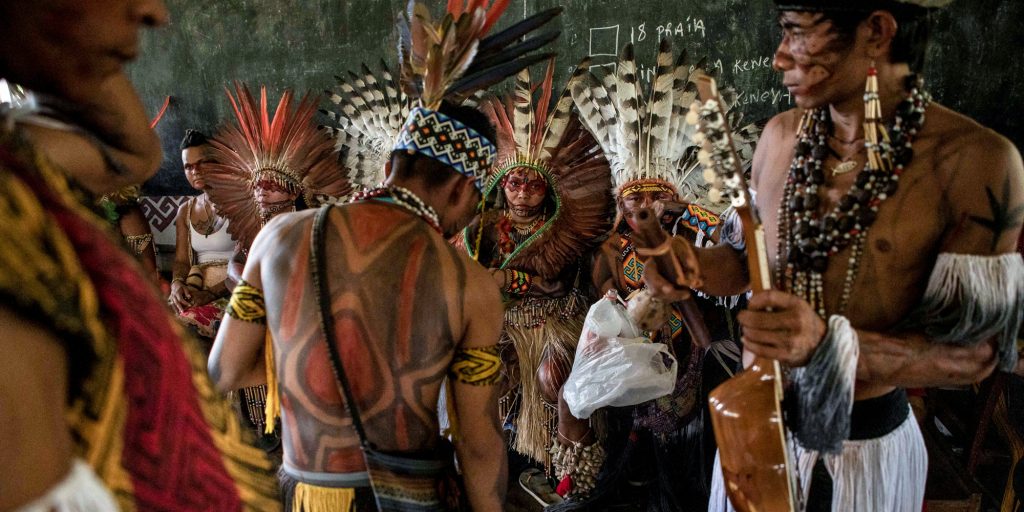
The habits of the Huni Kuin
A typical day in a small Huni Kuin village in the heart of the Amazon can be described as follows: They get up before dawn, at around 5 a.m. It starts to get very hot after 10 a.m., so they try to finish all the work that requires a lot of effort before then.
Around 10 a.m. they eat something and rest. There is no standard schedule for the work that needs to be done. Every morning, after breakfast (there is no difference between the food they eat for breakfast or dinner), the chief first meets with his family to discuss what needs to be done at that time in order to organize the work for the day.
Then he meets with the rest of the community. This meeting takes place in a completely natural way and everyone participates in it regardless of sex or age. No one is forced to do any work, everyone is aware of what needs to be done for their own survival as a tribe and that is why they work all day.
There is no marriage ceremony among their rites. The union of a couple is consecrated when the young man prepares the field for his beloved. Although the parents intervene for their own interests in these unions, they cannot force the young people to be together against the will of either of them. There are, however, many ceremonies that are carried out methodically, such as the fertility ceremony, or the passage from childhood to adulthood.
The Huni Kuin do not have a word to name humanity, or the human being. They distinguish, on the one hand, the kuin (themselves) and on the other the bemakia (“the other, the others”). The Huni bemakia are for them both the Incas and the whites.
There is an intermediate group between the two, which are the Huni Kayabi, indigenous people of the same linguistic group, Pano. So, to say “all of humanity,” the Huni Kuin would say “dasibi huni inun betsa betsapa,” which we could translate as “all of us and the others who are different.”
Continue Reading:
Huni Kuin Worldview50gr Huni Kuin
50gr Huni Kuin
50gr Huni Kuin
50gr Huni Kuin

